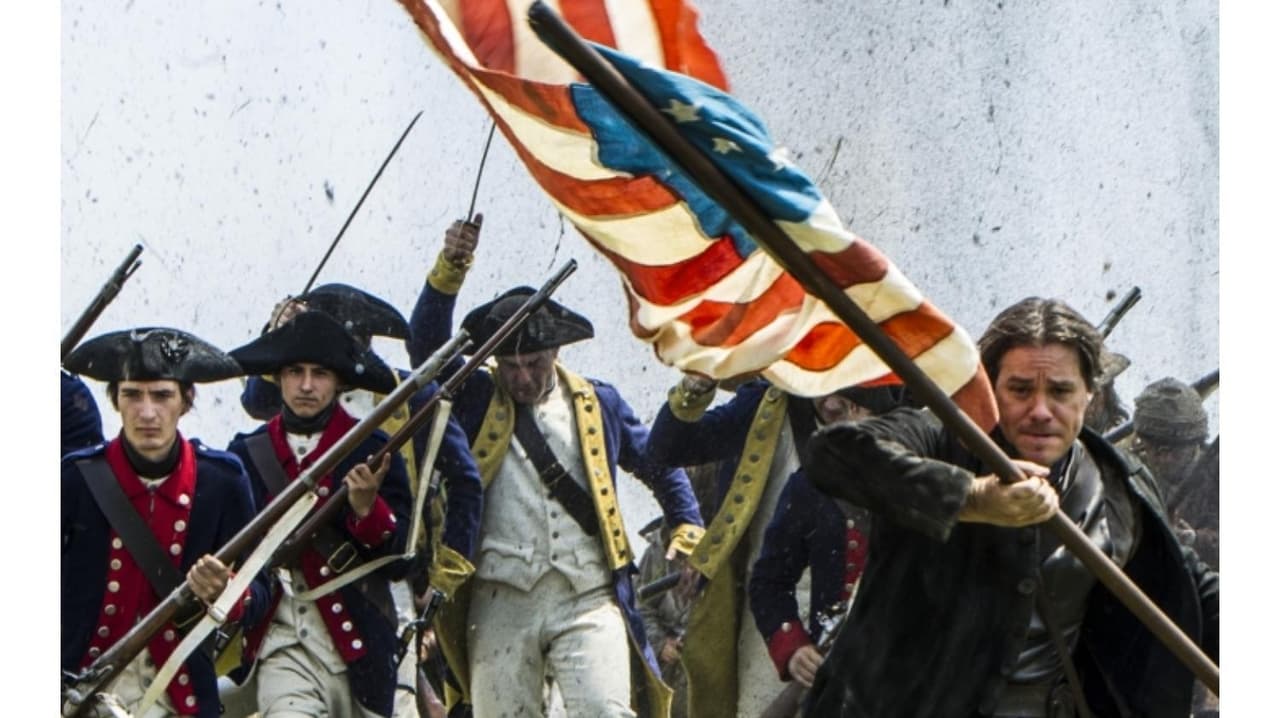The Revolution Season 1

The American Revolution is a 2006 miniseries from The History Channel composed of thirteen episodes which track the American Revolution from the Boston Massacre through the Treaty of Paris, which declared America's independence from Great Britain. The series is narrated by Edward Herrmann.
Watch NowWith 30 Day Free Trial!
The Revolution
2007

The American Revolution is a 2006 miniseries from The History Channel composed of thirteen episodes which track the American Revolution from the Boston Massacre through the Treaty of Paris, which declared America's independence from Great Britain. The series is narrated by Edward Herrmann.
Watch Trailer
The Revolution Season 1 Full Episode Guide
George Washington completes his eight-day trip from his home at Mount Vernon, Virginia to New York City and his inauguration as the first president of the newly United States of America. The former Commander-in-Chief of the Continental Army now becomes, simply, Mr. President.
As George Washington rides to his inauguration as the first American president of the United States, he reflects back on the war and its most critical moments, and looks ahead to how he will make his mark on the new and revolutionary nation that has chosen him as its foundational leader.
News of the American victory at Yorktown spreads quickly around the globe. Parliament forces the King to agree to American Independence, and John Adams joins Benjamin Franklin in France to negotiate the 1783 Treaty of Paris. The 13 new American states delineate a new form of government and urge Washington into the presidential office.
As the revolution continues, Washinton faces two mutinies in the Continental Army. In England, opposition to the war grows, and while the French tire of supporting America, Franklin continues to successfully solicit their aid. General Cornwallis moves his army to Yorktown, Virginia, and the Allied forces close in for the last major battle of the war.
After the fall of Charleston, the war explodes into the Carolina backcountry, touching of a brutal civil war. The Americans are defeated at Camden and in an unconventional strategic move, Generals Nathanael Greene and Daniel Morgan split the army between then, leading British General Charles Cornwallis on a chase that culminates in the Battle of Guildford Courthouse.
In their failure to defeat George Washington, the British change course and turn their attentions southward. In a final effort to quell the rebellion, they surround and lay siege to Charleston, South Carolina. Continental General Benjamin Lincoln braces for the attack, but his outnumbered forces ultimately fall.
The once heroic, General Benedict Arnold turns his back on his country in an act of pride, sealing his legacy as a traitor. George Washington takes the war to the frontier, burning the Iroquois Indians out of New York State and leaving a wake of destruction and devastation.
General Washington's losses continue, and some in Congress begin to question his leadership. Washington's immediate concern, however, is for the health and security of his ragged, starving, and slowly dwindling army.
As the American situation reaches desperation, Bejamin Franklin descends on Paris and talks the French into joining the fight against Britain. Meanwhile, British General William Howe badly defeats George Washington's troops at the Battle of Brandywine. To the North, American general Horatio Gates takes the Battle of Saratoga, thereby convincing France to enter the fight.
As the new nation begins to realize that all its efforts may have been for naught, a desperate and determined General George Washington gambles on a brillant - yet dangerously daring - design in order to save his army and America itself.
Finally, in 1776, noble ideas and long-desired dreams are realized as the Declaration of Independence is signed and America is born. Yet many dark and devastating struggles lay ahead, and few Americans trust that the glorious cause will survive.
As rebellion escalates into war, the Continental Congress establishes an army and appoints George Washington to Commander-in-Chief. When the army surrounds the British troops in Boston, Britain sends additional troops and its three best generals. In spite of these tactics, the Continental Army's assault forces the British troops and loyalists to flee the city.
Faced with escalating controversies and conflicts, the American colonists are forced to act. Some of the major political players of the rebellion are introduced as a Continental Congress convenes
Free Trial Channels
Seasons
























